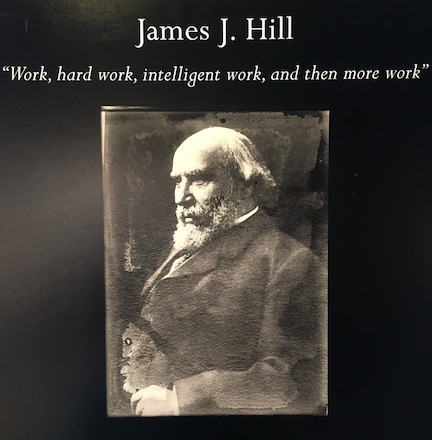Hard work is what others call your regular day?
If that ever happens, congratulations, you’re a badass.
When someone witnesses your struggle, but it’s not a struggle for you, it says more about them than it does about you.
Of course there’s an accompanying saying to tie it all together.
I don’t know who said it, but I like it:
“When you’re good at something, you tell others; when you’re great, they tell you.”
What is it about hard work that draws attention?
Work rewards those close to the worker, like their family. Work hard enough and the promise of a brighter future for them was a guarantee.
The man gets new shoes and gloves, the lady gets a new hat, the kids get clothes that fit. And don’t forget food on the table and a roof over their heads.
Work hard enough to provide the basics, then a little more for the promise.
If the family needs a bigger house, work harder. A new car? Work harder. Baby needs new shoes? In a never ending cycle of need, something has to change.
If working longer and harder isn’t getting it done, then what?
Working Smarter
The man in the top image was a warehouse guy in his youth. Instead of spending his spare time drinking and gambling and chasing around, the warehouseman paid attention to how things came and left the warehouse.
And he learned how to keep company books.
That was the beginning of his supply chain awareness. First it was rivers and lakes with shipping, then trains.
If he were alive today, what would he think of the logistical challenges of the modern day?
Would he work on product design, engineering, and development? Or would he stay in his shipping lane.
People who look beyond their current circumstances are full of surprises.
He’d probably improve factory production like Henry Ford and the assembly line
Early auto makers used to do everything in-house from the ground up. One of the hazards they faced was factory fires.
When fire shut down parts of an auto plant, the owners bought supplies from outside the company. Fire created a needed supply chain, which led to more specialization, which led to more and better cars.
The assembly line upped the ante.
In those early days a single U.S. patent controlled the auto industry: The Selden Patent.
The advertisement read, “Don’t buy a lawsuit, buy a Selden Patent car.”
Auto makers joined together under the patent. Ford tried to join but was labeled a ‘car assembler, not a ‘car maker.’
He eventually led the fight against the patent, breaking its control by stipulating it only applied to cars with a two-stroke engine, not the more common four-stroke.
It was small detail that evaded the early auto industry for sixteen years.
Ford did the hard work and the smart work.
Which Way Do You Work, Harder Or Smarter
The hard work happens in factories and plants producing goods for the rest of us.
I searched on this blog and came up with 165 pages that include ‘work’
That’s a lot of work.
Smart work designs and engineers the goods we buy. Then it goes to production with orders for raw materials.
The finished product goes to shipping. If it’s coming from Chinese factories, coordination happens between the factory and the port, ocean or air.
If it’s a sea port, the goods are loaded into containers which are placed on ships headed out. With the final destination of Portland, Oregon, the container ship sails up the Columbia River past Astoria, Oregon.
Once on land, the containers are broken down and sorted for further shipping by train or truck.
The hard work is moving everything around the shipping venues; the smart work is figuring out the timing and costs.
Analysts take the available data and crunch the numbers.
When it it all comes out right we walk into a big box store and come out with what we were looking for at a favorable price.
When it’s a shovel or an ax, the question of working harder or smarter isn’t relevant.
We do both. Then we do more.
If you do the same, leave a comment on which one you enjoy most.
We already know what James J. Hill would do.



